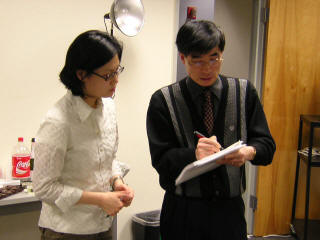
South Korea achieved urbanization and industrialization with a faster speed than any other country in the world; it was transformed from a predominantly agrarian society in 1960 to a premier postindustrial society in 2000. This presentation will take a comprehensive overview of the changes in family system in South Korea affected by societal changes between 1960 and 2000. It also examines elements of traditional family structure and family relations that persist in contemporary postindustrial Korea.
The physical separation of children from their parents in rural areas, caused by mass urban migration, along with technological advances, contributed to a gradual simplification of families and a gradual moderation of family ties during the period. However, families in South Korea still reflect more traditional, extended and patriarchal family characteristics, based on the Confucian ideology, indicated by stronger family and kin relations and a much lower proportion of married women in the labor force than those in the West.

The existence of traditional extended and patriarchal family characteristics in a highly urbanized postindustrial Korea indicates the importance of cultural changes, combined with government policy, for the transformation of Korean families comparable to Western families. In this connection, it is important to note that more significant changes in married women’s economic role, elderly people’s living arrangements, and divorce rate occurred there after 1990, when urbanization almost came to an end, than in the previous three decades.
Under the impact of many social forces, including the feminist movement, South Korea underwent sweeping cultural changes in the 1990s in the direction of increasing individualism and greater consciousness of gender equality. The 1990s also was a decade in which legal changes in favor of women’s participation in paid work and divorce settlements, made mainly by lobbies by women’s organizations, were fully enforced.

